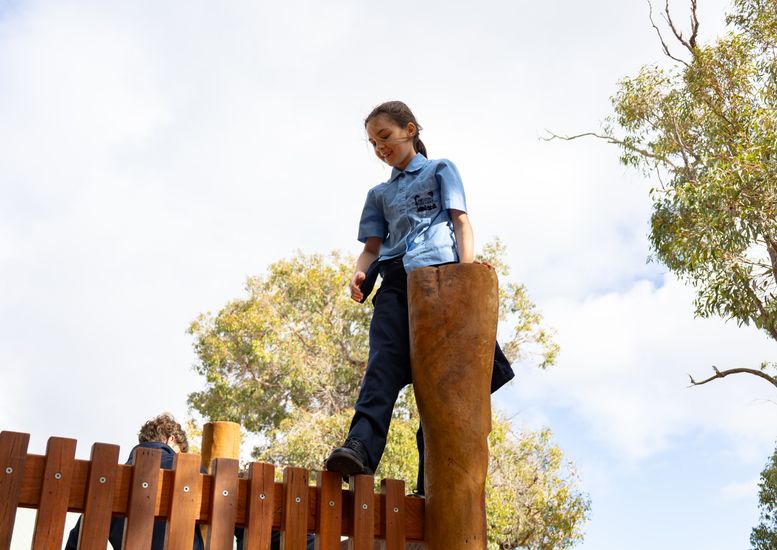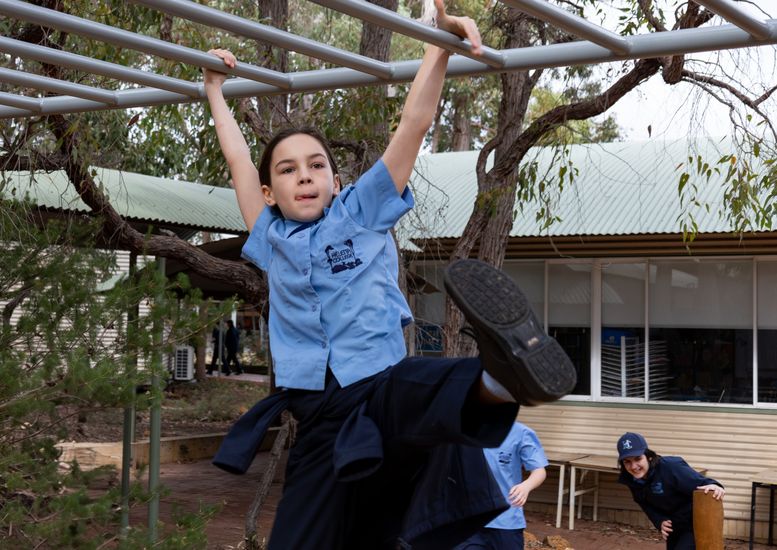The Big Benefits of Play for Big Kids
Much to the delight of Helena College’s Middle School students, new play equipment was installed for the start of Term Three. The students, particularly our Year 7s, felt strongly that they would like a playground to transition to after leaving Year 6. Student input is valued at Helena College and their ideas were key to the development of the new play area.
Active play is crucial for the healthy development of children, particularly in early adolescence. This stage, typically ages 9 to 14, is pivotal for physical, emotional, and social growth. While Year 7 is traditionally the start of secondary schooling, it does not mean that children's desire for active play ends. Twelve and thirteen-year olds enjoy the opportunity to engage in team games and physically challenging activities such as climbing and swinging from the monkey bars just as much as their younger peers.
Engaging in active play during those tween and early teen years offers numerous benefits beyond simple entertainment.
Firstly, active play significantly contributes to physical health. During early adolescence, children experience rapid growth and development. Regular physical activity helps build strong bones and muscles, improves cardiovascular health, and maintains a healthy weight. Active play enhanced motor skills, coordination, and overall fitness. This foundation of physical health can set the stage for lifelong healthy habits and reduce the risk of chronic diseases.
Beyond the physical benefits, active play is essential for mental an emotional well-being. Early adolescence often brings significant changes and challenges, including increased academic pressures and social dynamics. Active play provides an outlet for stress relief and emotional regulation. It encourages the release of endorphins, natural mood lifters, helping to combat anxiety and depression. Additionally, engaging in play that requires strategy and problem-solving can boost cognitive development and improve concentration and focus.
Socially, active play is a powerful tool for building relationships and developing social skills. Through team sports and group activities, adolescents learn cooperation, teamwork, and fair play. These interactions help develop communication skills, empathy, and the ability to work towards common goals. Such social engagements also offer opportunities to form friendships and build a sense of community and belonging, critical for emotional health during this developmental stage.
But for our students, play is just play, and they couldn’t wait to try the equipment out. And who better than the students themselves to give us a review of the play area the Year 7s campaigned for:
The playground was a great experience and it made me feel great. ~ Diora B
The new playground makes our recesses and lunches way more fun! Thank you so much! ~ Leigh C
The new playground is so good. I’m glad we were finally given a playground of our own. The monkey bar challenge was fun! ~ Kimberley B
We were also delighted to see a few of our older students (Year 8 and 9s) have a go at completing the monkey bar challenge, proving you're never too old for pla5!
If you’d like to know more about Helena College, we encourage you to book a tour.
Want to know more?
We welcome all enquiries, and if you'd like to know more about current enrolment opportunities, we invite you to join one of our upcoming tours.

